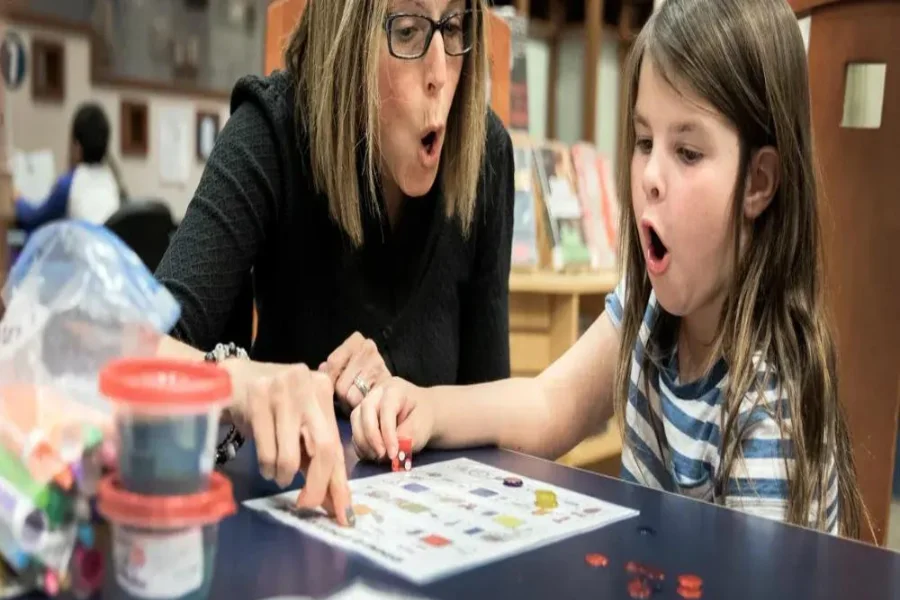
Reading is the most basic skill that has far-reaching effects on the overall development of the child. But there are growing cases of children who struggle to read fluently despite possessing normal intelligence. Such difficulties are often correlated with what is termed ‘Disability of Reading’ with particular reference to how words are identified, processed, and given meaning. ‘Disability of Reading’ does not concern one particular type; in fact, there are many, with each type manifesting unique symptoms and reasons. These differences are crucial for providing timely assistance and tailoring appropriate support.
What Disability Affects Reading?
The root of some reading disabilities comes from some Types of Learning Disabilities, which affect the way the brain understands written words. These disabilities can affect the ability to decode, the fluency, the understanding of the text, or any combination of the three. Probably the most well-known is the case of dyslexia, although other disabilities affect the ability to read.
This is a summary of the disabilities that have an impact on reading:
Dyslexia
The most common reading disability, dyslexia, affects word recognition, spelling, and decoding. It is not linked to intelligence but to how the brain interprets letters and sounds.
Auditory Processing Disorder (APD)
Auditory refers to the listening aspect, which implies that children with this disorder cannot make sense of the sounds of language. This makes it hard to connect spoken words with written ones.
Visual Processing Disorder
This affects how the brain interprets visual information. Children may mix up letters, skip lines, or struggle to track words across a page.
ADHD (Attention-Deficit/Hyperactivity Disorder)
ADHD is a neurological disorder that influences the focusing competency of the child, which impacts the child’s reading skills and accuracy.
Language Processing Disorder
As the name suggests, the effects of LPD are seen on both the verbal and written communication skills that impact the way children decode the words they read and express their emotions verbally.
Identifying the specific learning disorder helps to find out the real areas of concern of the child and accordingly design strategies that help children achieve their learning goals.
For more details on the LD Course, Call/WhatsApp at +919321024137 / +919869866277
To download the brochure about the LD Course, Click Here!

Source: gearedtolearn
What are the Types of Reading Disabilities?
There can be various types of reading disorders that a student might face while they are reading or trying to understand what they are reading. Each of the reading challenges is on a spectrum and can challenge learning in varying degrees, all of which may require different methods of support.
The primary challenges with reading are described below:
Dyslexia (Difficulty with Word Recognition and Decoding)
A common challenge where the person cannot connect the corresponding sound to the letter and has issues reading unfamiliar, complicated words.
Specific Comprehension Deficit
These challenges affect the way children comprehend or make sense of what they are reading. The child possessing this disorder can read correctly, but cannot comprehend.
Mixed Reading Disability
This disorder is a blend of decoding struggles and understanding the text. Here, the child cannot read properly as they cannot connect the sounds to the words and cannot make sense of what they are reading.
Fluency Disorder
This disorder affects the fluency of reading of the child, where the child is reading accurately but has a very slow pace, due to which the overall academic progress takes a hit.
Hyperlexia
This disorder is said to have a connection with Autism spectrum disorder, where they cannot comprehend what they are reading but have accurate reading abilities.
Knowing what the precise Learning Disabilities it helps all the stakeholders, such as the parents, caregivers, and teachers, to devise a wholesome intervention plan that targets the exact issues, addressing each child’s unique needs effectively.
Impact of Reading Disabilities
The influences of reading disabilities are not just limited to academic hindrances; it has an impact on the child’s social, emotional, and psychological well-being. Reading disabilities, when diagnosed early, can be beneficial for parents, teachers, and special educators to be well-prepared to handle the diverse learning needs and address the child’s emotional, social, and future educational experiences.
- Academic Challenges: As reading is a must in all subjects, the inability to read fluently restricts the child’s competency in all subjects.
- Poor Self-confidence: As the child is way behind his peers in the classroom, they feels dejected and extremely embarrassed to engage in all classroom activities.
- Hesitation to read: Continuous struggle to read leads to resistance to getting involved in any reading activities that can influence his learning progress.
- Delayed Language Development: Reading disorder restricts the child’s vocabulary, hampering their language comprehension, leading to poor verbal skills.
- Limited social interaction: Due to poor academic progress, the child might feel awkward to even be friendly with their peers due to self-doubt, leading to poor social interaction skills.
Knowing the child’s struggles helps parents and educators to take the essential steps to lessen their struggles and offer them effective and supportive strategies that help children succeed despite their challenges.
For more details on the LD Course, Call/WhatsApp at +919321024137 / +919869866277
To download the brochure about the LD Course, Click Here!

Identification of Reading Disabilities and Intervention
Timely identification of Reading disabilities can be extremely constructive for providing the child with the precise aid in terms of academics and emotionally helping them develop sharp literacy skills and polished language competencies, oral and verbal as well.
Small signs of struggle must be noted by parents, educators, and caregivers to help children overcome learning challenges and improve their reading accuracy, fluency, or comprehension
Identification involves:
- Observation of Reading Behaviors: Some of the most striking signs can be reverse reading, getting confused between mirror images, and skipping words.
- .Consistent reviews: There should be standardised tests conducted to track the progress of the child’s reading fluency and comprehension to assess if there is really a reading disability present.
- Educational Evaluations: Psychologists and special educators conduct detailed assessments to understand specific reading-related deficits.
Effective Interventions Include:
- Phonics-Based Instruction: Incorporating phonetics-based teaching methods that help children master letter-sound relationships promotes their overall language skills.
- Multisensorial Methods: Using different visual, auditory, and kinaesthetic strategies helps to focus on the strong sensorial skills of the child, which helps in better retention of topics.
- Individualized Education Plans (IEPs): These guarantee organized learning support that is adapted to the reading requirements of every child.
Vidhyanidhi Education Society (Govt. Regd.) provides a Learning Disability Course to equip teachers with the skills to diagnose and support children with reading difficulties. Through this Learning Disability Course, teachers acquire diagnostic methods, planning for intervention, and inclusive teaching approaches.
Join Vidhyanidhi Education Society’s LD Course now to empower inclusive minds today!
For more details on the LD Course, Call/WhatsApp at +919321024137 / +919869866277
To download the brochure about the LD Course, Click Here!
Disability of Reading
FAQs
How Many Individuals Have a Reading Disability?
5% to 15% of the population suffers from a reading disability, the most widespread of which is dyslexia.
Can Reading be a Disability?
Yes, reading difficulty that interferes with learning and daily activities is indeed a learning disability, like dyslexia.
What is Reading Disability Called?
A reading disability is commonly known as dyslexia. Vidhyanidhi Education Society offers training to identify and support such learning challenges.



